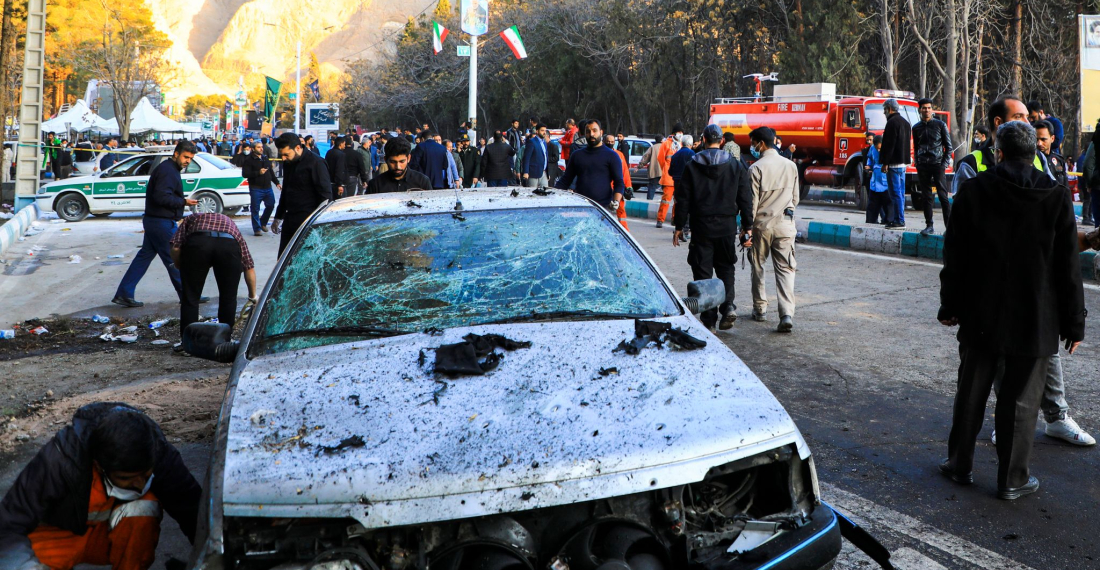It seems someone is trying to add fuel to fire in an already tense Middle East.
A terrorist attack in Iran's southern city of Kerman on Wednesday (3 January) left nearly one hundred people dead, and many more injured. The victims were in a massive crowd participating in an event commemorating Revolutionary Guards general Qasem Soleimani four years after his death in a US strike.
The two explosions came amid high Middle East tensions over the Israel-Hamas war in Gaza and the killing of a Hamas senior leader in Lebanon on Tuesday.
Global condemnation
The unclaimed attacks, which sparked fears of a widening conflict in the region, and sparked global condemnation.
The United Nations, European Union, and several countries including Saudi Arabia, UAE, Turkey. Russia, Jordan, Germany and Iraq denounced the blasts.
UN chief Antonio Guterres “strongly condemns” the blasts, his office said, and the EU said: “This act of terror has exacted a shocking toll of civilian deaths and injuries.”
The EU’s top diplomat, Josep Borrell, said that he spoke to Iranian Foreign Minister Hossein Amir-Abdollahian to “convey condolences” and “condemned this terrorist attack in the strongest terms and expressed solidarity with the Iranian people.”
US denies involvement
The United States had earlier rejected any suggestions that it or ally Israel were involved while Israel declined to comment.
Iran’s supreme leader Ayatollah Ali Khamenei blamed “evil and criminal enemies” of the country for the attack and vowed a “harsh response.President Ebrahim Raisi, who scrapped a visit to Turkiye on Thursday, condemned the “heinous” crime as the Islamic Republic of Iran declared Thursday a national day of mourning.
The blasts, about 15 minutes apart, struck near the Martyrs Cemetery at the Saheb Al-Zaman Mosque in Kerman, Soleimani’s southern hometown, as supporters gathered to mark his killing in a 2020 US drone strike in Baghdad.
Three paramedics who rushed to the scene after the first explosion were among those killed, said Iran’s Red Crescent. Iran's state news agency, IRNA, said the first explosion took place around 700 meters (yards) from Soleimani’s grave while the other was around one kilometer away.
Tasnim news agency, quoting what it called informed sources, said that “two bags carrying bombs went off” and “the perpetrators... apparently detonated the bombs by remote control.”
Online footage showed panicked crowds scrambling to flee as security personnel cordoned off the area.
State television showed bloodied victims lying on the ground and ambulances and rescue personnel racing to help them.






